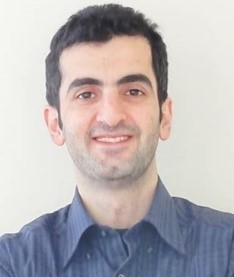Systematic PV System Power Losses Calculation and Modeling Using Computational Intelligence Techniques
Abstract The performance of photovoltaic (PV) systems is highly affected by different types of power losses that are incurred by electrical equipment or altering weather conditions. In this context, an accurate analysis of power losses for PV systems is of significant importance. Hence, the systematic calculation of the PV system power losses based on recorded data of the main electrical and meteorological parameters is introduced in this presentation. The proposed approach for power losses calculation investigates both array capture losses (e.g. losses that result from cell temperature, soiling, low irradiance, snow cover, mismatching, and module quality degradation) and system losses (e.g. losses that result from cabling, inverter, etc.). In addition, the modeling of all types of losses based on computational intelligence techniques is discussed in this presentation. The proposed models can predict the future daily values for each type of loss solely based on the main meteorological parameters. The proposed losses calculation approach is applied to eight years of recorded data for a 1.44 kW rooftop PV system located in Denver, CO. Several prediction models are built based on the calculated values of the losses. The models are not only validated on the PV system itself, but also on another PV system with different electrical characteristics in Las Vegas, NV.
Date and Time
Location
Hosts
Registration
-
 Add Event to Calendar
Add Event to Calendar
Loading virtual attendance info...
- Contact Event Host
-
Branislav.Djokic@ieee.org
Speakers
 Behzad Hashemi of Université du Québec en Outaouais, Gatineau, Québec
Behzad Hashemi of Université du Québec en Outaouais, Gatineau, Québec
Biography:
Behzad Hashemi has been a Ph.D. student in Information Science and Technology at the Université du Québec en Outaouais (UQO) since 2019. He received his bachelor's and master's degrees in Power Electrical Engineering in 2014 and 2017. Behzad is currently a graduate student researcher working under the supervision of Professors Taheri and Cretu. His research focuses on the application of computational intelligence (CI) techniques and machine learning algorithms in the energy sector. He is working on modeling the performance of PV systems in snow conditions. This includes the CI based prediction and forecasting of energy production by PV systems and evaluating the performance of models in scheduling and operation of power systems.
 Prof. Shamsodin Taheri of Université du Québec en Outaouais, Gatineau, Québec
Prof. Shamsodin Taheri of Université du Québec en Outaouais, Gatineau, Québec
Biography:
Shamsodin Taheri (SM, IEEE) received B.Sc. Degree in Electrical Engineering from the University of Mazandaran, Babol, Iran, in 2006, M.Sc. Degree in Electrical Engineering from Iran University of Science and Technology, Tehran, Iran, in 2009, and Ph.D. Degree in Electrical Engineering from the Université du Québec à Chicoutimi, Chicoutimi, QC, in 2013. From 2013 to 2014, he worked with the Technical Services and Research Department, Saskpower, Saskatoon, SK. In 2014, he joined the Université du Québec en Outaouais, Gatineau, QC, where he is currently an Associate Professor. His main research interests include power systems, renewable energy, numerical modeling, and grid integration of electric vehicles.

